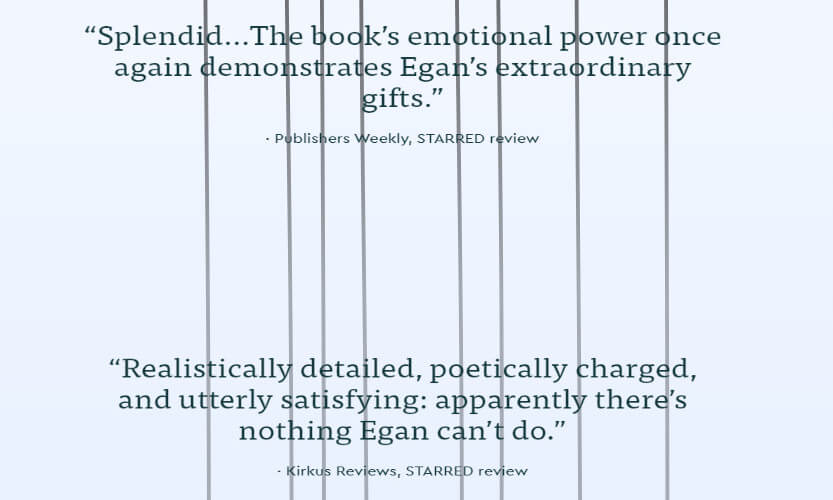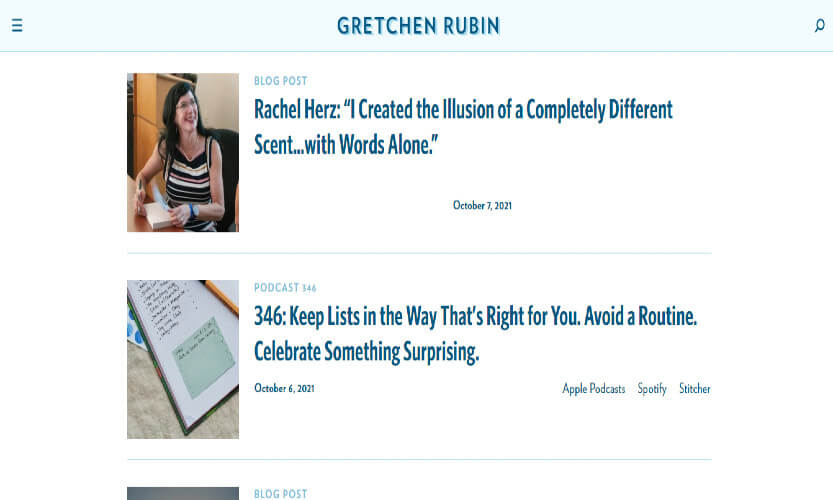One of the questions writers ask most frequently is – “does an author need a website?”
With so many ways to promote yourself online now, from social media to forums, do you really need to go to the expense and hassle of creating a website for you and your books?
The simple answer is…yes!
In this article I will guide you through everything you need to know, from what makes a good author website, to whether you need one of your own. By the end of this blog, you will understand the perks of having your own dedicated website and how it can be instrumental to building your author brand.
Do Professional Writers Need A Website?
Whether you are an author, journalist, poet, playwright, freelance writer, or any kind of writer, it is likely you have asked yourself the same question. As a writer there are already so many things you need to do to get your work out there, this feels like one very large and unnecessary thing to add to your to do list.
Bear with me, because you’re about to find out how this may well be one of the most important things you can do for you and your future as a writer.
Regardless of the industry you are in, your online presence can contribute massively to your brand and the success of your creative work. You wouldn’t set up a new business without having a website – and being a writer or author is no different.
According to Internet World Stats, there are over 4.2 billion internet users, and Google averages about 40,000 searches per second, so it stands to reason that the internet is instrumental to the success of any brand today. I’m sure even Shakespeare would have had a website if he were around today!
Having your own website doesn’t mean you need to be tech-savvy, or that you need to invest in a professional designer. But when your book is in the shops and the press or a reader Googles you, you want to make sure you are able to share everything about you and your work that you can. So where do you start?
Let’s look at this in more detail…
Reasons Why Writers Need A Website
Social Media Isn’t Enough
Social media platforms such as Facebook, Instagram, LinkedIn, Twitter, and Tumblr are great platforms on which to promote your businesses and the perfect place to engage with your audience, but you don’t want your business to live solely on social media.
Firstly, you have very little control. Recently, Facebook, Instagram, and WhatsApp were down for around 6 hours, all at once! That’s six hours that people can’t find out anything about you.
Social media platforms can also delete or restrict accounts when they wish. And even though most of these platforms are established and been about for years, neither do we know if they will be around for ever – or as popular.
Ideally, you want your brand to live on your own domain. You own and control your website; there are no rules or conditions you have to comply with. Your website belongs only to you, and you can post any kind of content you want and conduct any form of marketing or advertising on it that you wish.
Personal Brand Development
A personal brand is your identity – and when you are an author, that reflects on your work too. Just like any organisation’s personal brand helps convey their values and identities to its customers, your own personal brand helps you communicate who you are and what you stand for to your readers.
When you control what’s on your website, you control the narrative. Your author website provides a platform to tell your story, communicate a coherent brand image, showcase your expertise, qualifications, works, professionalism, plus shout about your publishing achievements to readers, the press, and other publishing professionals.
Example 1
Judy Moody is a fun children’s book series by Megan McDonald. The creative style and illustration of the author’s website perfectly reflects the brand image of the author:
Build A Community
A professional website presents you with an opportunity to build an active community where readers can interact directly with you, get an exclusive insight on you and your work, and provide feedback that you can use for future work.
You can also build a newsletter, which has a much higher ‘book sale’ conversion rate than most other forms of advertising. Visitors can subscribe to your mailing list where you can keep in touch with them weekly or monthly. These newsletters can attract a lot of interest in the long run as subscribers who are already in love with what you do are more likely to recommend your books or services to other people who are looking for great writers. Personal recommendations go a long way in promoting your personal brand.
Gain Audience Trust
Most people go online to search for more information about a person or brand. According to wpforms, 55% of people search the internet for a brand’s website – and that includes your book. You can lose respect and credibility with readers if you can’t be found online. A strong website that showcases your brand, your work, and you, is a great way of demonstrating that you are as reputable as you claim to be.
Example 2
Aside from the immersive experience Jennifer Egan’s website gives its visitors, it also showcases reviews from reputable sites which is a great way of building trust with her readers.

Interaction Opportunities
Just like all social media platforms, a website is a great medium for interacting with your audience. You can even create a forum on your website where members of your community can interact with you and each other.
You can also set up a blog on your website where you can get feedback from visitors. Links to these blog posts or forum topics can be shared on your own social media platforms, and are also likely to be shared by your community members – helping spread the word to their like-minded contacts.
Social media can also be instrumental in driving traffic to your website. Instead of creating a long thread or post on your social media personal pages, it’s always easier to share links to your website or specific pages – ensuring your marketing remains cohesive and everyone gets to hear about you.
Establish A Content Hub
A website also provides you with a great content platform on which you can showcase your work. Editors, publishers, press, and readers who are interested in your work can find everything they need, in one place, on your website.
Example 3
Gretchen Rubin’s website provides more than just information about herself and her brand. Her website offers extra value as it’s also filled with blog posts, podcasts, quizzes, and other resources. This is highly appealing to her visitors and makes them more likely to return to her website.

Be Competitive
Whether you like it or not, your writing should be treated as a business if you want to succeed. You want your author name to be found on search engines when people look for you. There are thousands (possibly hundreds of thousands) great writers out there – so how will your prospective readers find you?
A writer website gives you a competitive advantage as not only will it help people find you, but it boosts credibility and perceived value. Put simply, people are more likely to trust a brand with a dedicated website featuring detailed information and services than a business that doesn’t offer that.
Search Engine Optimisation (SEO)
Your website doesn’t just provide information about you and your work, it can also boost your visibility on the internet. The more visitors you have, the higher the ranking on the search engine results page.
According to Forbes, 75% of people never go past the first page of search engine results, hence the need for your website to rank as high as you can on the organic search engine results page.
By incorporating SEO practices into a website for an article writer there is a decent chance of it being easily accessible. Regularly updating your website with relevant content and adding keywords to your content are SEO practices you should consider. So, if you are a romance writer specialising in books about Victorian detectives – make sure you use those terms as often as you (naturally) can on your website. Because when someone Googles ‘Romance novels featuring Victorian detectives’ you want to be the first person they find!
Example 4
In terms of design and functionality, Austin Kleon’s website is up there with top author pages. The website demonstrates his brand, it’s easy to use, and it’s evident that he updates it regularly and is always bringing out new books.

Save Time And Money
Aside from the fact that websites are affordable to set up and maintain, they can also save you a lot of time and money. When querying your work with agents, many ask for your website. Likewise, when press want to write about you and your book, you don’t have to keep sending long emails or press releases to each separate media company – simply direct them to your press kit on your site featuring bios, credited author photo download, and everything they need to know about your work and where to buy it.
Publication Platform
Having your own author website means you are free to publish your work, on your site, for free – whenever you want. As established earlier, there are no restrictions guiding the timing and content you can publish on your website. Many authors like to publish free short stories for their readers, or run competitions on their newsletters, or use this free content as a way to get people to subscribe to their newsletter.
Example 5
David Sedaris’s brilliant website showcases his books in a simple fashion. The “works” section on the website is unique, creative, and tells the whole story.
Also, publishing content on your blog regularly keeps your visitors engaged and helps you collect feedback.
Derive Revenue
A website can also be a valuable sales platform – especially for self-published authors. As of 2021, 27.6% of the world population makes the majority of their purchases online. It’s easier, quicker, and faster to buy books online than in a bookstore (especially with those with mobility issues, living in remote areas, or unable to leave the house). And with the recent lockdowns, online book purchasing has seen its largest rise ever.
The best author websites have a payment gateway feature. You can integrate a payment system on your website that allows people to place orders for your book and checkout with ease or simply connect visitors to other distribution platforms such as your favourite indie bookstore, Amazon, or your publisher’s online shop.
How Much Does A Website Cost To Create?
Websites are cheaper and easier to set up and maintain than people realise. Your first stop is creating a domain name – this should be your author name. Luckily most people find that the url of their name isn’t taken. If it is, you can always add the word ‘books’ or ‘author’ after your name.
Next you need to design your site. If you haven’t a clue how to create your own author website, there are several DIY sites such as WordPress, Squarespace or Wix.com with a template collection from which you can choose any author website template and edit it to your style. Examples of inspiring author website design templates can be also found on Pinterest. However, if you want a unique author website design, you can always hire a professional.
Get Seen
I hope this guide has helped you understand the importance of having an author website, and why it’s worth the investment in time and money. Not every author wants a website, and perhaps if you write for fun or only have one book to promote, you may not see the need for it.
But remember, if your work is competing against that of dozens of similar writers – it’s the one with the largest online presence who will be found first!
Jericho Writers is a global membership group for writers, providing everything you need to get published. Keep up with our news, membership offers, and updates by signing up to our newsletter. For more writing articles, take a look at our blog page.











